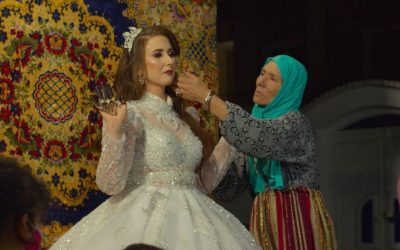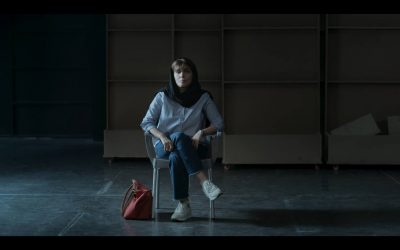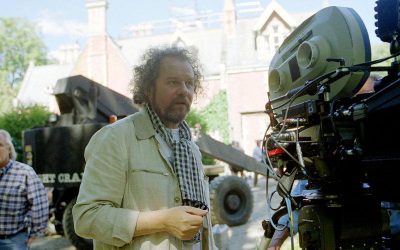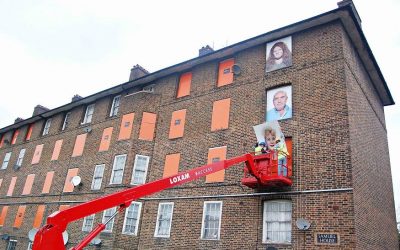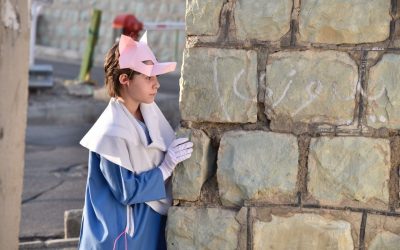
Nasrin Mohammadpour
Nasrin Mohammadpour, born in 1989 in Mashhad, is a graduate of cinema, sociology, and women’s studies. She is also a social worker and researcher, focusing on filmmaking in the domain of women and family. Her works include:
- The narrative film Zohal (2020) centered on child marriage,
- The documentary The Forgotten (2016), a research project on women during the Constitutional Revolution,
- The short narrative film Left-Handed (2021), which focuses on empowering female heads of households,
- And the short film 21 Weeks Later (2022), which deals with body management.
Awards for (21 Weeks Later)
- Sonje Award at the Busan Film Festival, South Korea.
- Jury Award at the Adana Film Festival, Turkey (21 Weeks later)
Awards for (Left-Handed)
- BNP Left-Handed siff Women film festival of Korea.
- Honorable Mention at Amarcort, Italy.
- Best Film Award at a festival positivelydifferent Greece.
- Jury Award at La Mirada Taboo, Spain.
- Best Film at the International Parvaz Festival.
- Special Audience Award at the Gobeklitepe International Film Festival, Turkey.
- Medal of Honor from ISFA (Iranian Short Film Association).
Awards for (Zohal)
- Best Film Award at the Lampa Festival, Russia.
Redcut: You were a feminist researcher and sociologist primarily concerned with the challenges women face in a patriarchal society. What led you to choose the medium of film to tell women’s stories?
Mohammadpour: The choice of this medium, or more specifically, the language of cinema, has been important to me in expressing my concerns. Cinema is a very broad and popular medium that reaches a wide audience. Another crucial factor is the deep impact and accessibility of cinema compared to other types of social media. It transcends language, cultural, and conceptual barriers in all societies, creating a shared understanding across the world. Cinema’s quick dissemination and ability to convey messages, even in the most superficial works, make it a powerful tool. So why not use this universal language for important human topics?
Redcut: In 21 Weeks Later, we see a woman who secretly aborts her child, wandering with the fetus in a bag. She does this to maintain control over her body and the choice of motherhood, while her husband, representing patriarchy and domestic violence, is unaware. In a country where abortion rights are denied, and women have fought for the right to bodily autonomy, why did you choose to tell this story?
Mohammadpour: The importance of this topic stems from the historical challenge women have faced regarding the right to abortion and body autonomy. Many periods have seen criticism and movements pushing for women’s right to manage their own bodies. Unfortunately, this issue remains one of the most significant concerns in countries where patriarchal governments deprive women of this natural right under the influence of political, moral, and cultural values. Numerous activists and filmmakers have created successful films to raise awareness or criticize these restrictions, and some have even influenced laws in their countries. In Iranian cinema, many films—both directly and indirectly—have addressed this issue. Since this topic remains a pressing challenge for young women in society, I decided to approach it from a different perspective, focusing on the challenges and complications following abortion.
Redcut: In this film, the body symbolizes a refuge and a home for a soul that, within the patriarchal structure, lacks the capability and readiness to give life to another being. It is wandering through the city, and through the act of abortion, the woman attempts to reclaim control over her body. We encounter the concept of insecurity and the lack of a home, which is supposed to be a safe place and offer the right to choose one’s existence. What does the concept of bodily and home security mean to you in this film?
Nasrin Mohammadpour: I want to answer this question by referencing Turner and drawing from my lived experience as a woman, a social worker, and a filmmaker in the realm of women’s issues. The politicization of women’s bodies has increasingly become a central focus of political and cultural activities today. Regulating bodies has become a strategic and political entry point, as governments have consistently placed women’s bodies under control and management. Historically, from primitive societies to industrial ones, policies, and laws have been enacted to control women’s reproductive roles without considering their basic personal rights. These laws dictate women’s readiness or lack thereof for motherhood. Initially, the management of a woman’s body is influenced by political structures, followed by her husband, society, and finally, herself. This also applies to the home as a shared living space; a woman’s sense of power and ownership of the home is dependent on her full submission to the rules governing married life, which includes a significant portion of women in society.
Redcut: The scenes in which the woman, holding the fetus in a bag, runs away from her husband with constant anxiety, wandering through the city, symbolically evoke the history of women who carry the wounds of their bodies. In a city that is supposed to be a safe place for all citizens, it is depicted in its most unsafe form. How did you come to the decision to have the woman carry the fetus, a part severed from her body and soul, through the city?
Importance of portraying these scenes and the emotions created in them: For me, the significance of these scenes lies in the sense of guilt that is imposed by the value systems governing families, as well as the ethical, political, religious, and ideological structures of society, particularly when criticizing the management of women’s bodies in relation to abortion. This woman, after 21 weeks of internal contemplation, has made her decision. She wants to mourn for her fetus or child despite what has transpired. In one of the most critical moments of her life, where she desperately needs empathy and support from her loved ones, she finds herself utterly alone and without shelter. This feeling of loneliness, insecurity, internalized blame, and rejection is created for this woman—and for other women who criticize the management of their bodies by the system—by the dominant value structures of society and the executive policies in place. These structures put women under immense confusion and psychological pressure when it comes to making the most personal decisions of their lives.
Redcut: What is your next project? Could you tell us a little about it?
Nasrin Mohammadpour: My new project, like my previous works, focuses on women and the social challenges they face. This time, I’m concentrating on the hidden gender-based class system in women’s work environments. Similar to my short film Left-Handed, this film addresses working women, specifically those unaware of their minimal benefits and civic rights. In this short film, I narrate the personal and professional life of a young woman who faces a challenge at work that forces her to make a difficult decision. Each choice presents challenges for her, her family, and her professional position. The main plot revolves around which choice she will make. As a social worker and filmmaker, one of my key concerns has always been addressing the issues faced by working women and female heads of households.


